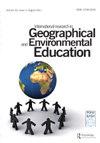生成式人工智能(AI)语言模型的兴起——地理和环境教育的挑战和机遇
IF 3.1
Q2 EDUCATION & EDUCATIONAL RESEARCH
International Research in Geographical and Environmental Education
Pub Date : 2023-03-27
DOI:10.1080/10382046.2023.2194036
引用次数: 5
摘要
围绕生成式人工智能语言模型(如ChatGPT)以及它们对教育的优势和威胁进行了大量讨论。作为一种人工智能语言模型,ChatGPT具有改变地理和环境教育的潜力。ChatGPT所拥有的广泛的知识库和自然语言处理能力使其成为实现这一目的的完美工具;它可以积极地让学生参与对话(正如它的名字所暗示的那样),同时也为他们提供快速反馈。正因为如此,学生们可以自由地按照自己的节奏学习材料,使用最适合他们个人的策略。然而,这一变化受到了其他人的批评,他们担心这会侵犯知识产权,破坏学术诚信。随着关于生成式人工智能模型对教育是利还是弊的讨论继续进行,我们想重点关注地理和环境教育面临的问题和潜力。我们做了一个简单的实验,并要求ChatGPT:“写一段短文,解释地理教育如何支持儿童在认知和情感上的发展,以应对我们这个时代的环境挑战。”这就是结果。本文章由计算机程序翻译,如有差异,请以英文原文为准。
The rise of generative artificial intelligence (AI) language models - challenges and opportunities for geographical and environmental education
Much discussion has been surrounding generative AI language models, such as ChatGPT, and the advantages and threats they present to education. As an AI language model, ChatGPT has the potential to transform geography and environmental education. The extensive knowledge base and natural language processing abilities that ChatGPT possesses make it a perfect tool for this purpose; it can actively include students in conversation (as the chat in its name implies) while also providing them with quick feedback. Because of this, students are free to progress through the material at their own pace, using strategies that best suit them individually. Yet, this change has been criticised by others who worry about intellectual property violations and undermining academic integrity. As discussions continue about whether generative AI models are a boon or bane for education, we would like to focus on the problems and potential facing geography and environmental education in particular. We did a simple experiment and asked ChatGPT to: "Write a short paragraph to explain how geographical education can support a child’s development cognitively and affectively, in responding to the environmental challenges of our times." This was the result.
求助全文
通过发布文献求助,成功后即可免费获取论文全文。
去求助
来源期刊

International Research in Geographical and Environmental Education
EDUCATION & EDUCATIONAL RESEARCH-
CiteScore
5.20
自引率
33.30%
发文量
11
期刊介绍:
International Research in Geographical & Environmental Education publishes quality research studies within the context of geographical and environmental education. The journal endeavours to promote international interest and dissemination of research in the field, provides a forum for critique, and demonstrates the relevance of research studies to good professional practice.
 求助内容:
求助内容: 应助结果提醒方式:
应助结果提醒方式:


